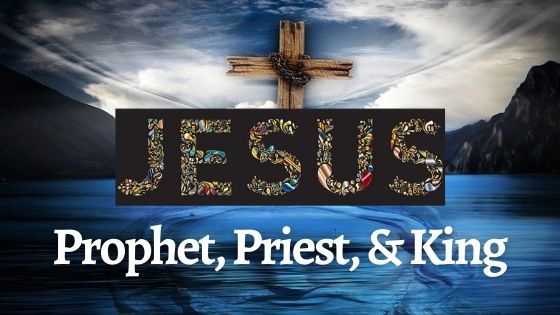Most Christians are familiar with the 3 offices of Christ: prophet, priest, and king. But what’s the scriptural basis for this?
There are three major offices among the people of Israel in the Old Testament: the prophet, the priest, and the king. These three offices were distinct. The prophet spoke God’s words to the people; the priest offered sacrifices, prayers, and praises to God on behalf of the people; and the king ruled over the people as God’s representative.
The three offices foreshadowed Christ’s own work in different ways. As a prophet, He reveals God to us and speaks God’s word to us. As a priest, He both offers a sacrifice to God on our behalf and is Himself the sacrifice that is offered. And as a king, He rules over the church and over the universe as well.
Christ as Prophet
Moses, the author of the first five books of the Bible (Pentateuch), was the first major Old Testament prophet. After him was a succession of other prophets who wrote God’s words. But Moses predicted that sometime another prophet like himself would come (Deuteronomy 18:15-18).
But looking at the gospels we see that Jesus is not primarily viewed as a prophet or as a prophet like Moses. Often those who call Jesus a “prophet” know very little about Him. For instance, when Jesus asked His disciples what the people said He was (Matthew 16:14; Luke 9:8). Various opinions of Jesus were circulating: “Some say John the Baptist, some Elijah, and others Jeremiah or one of the prophets.”
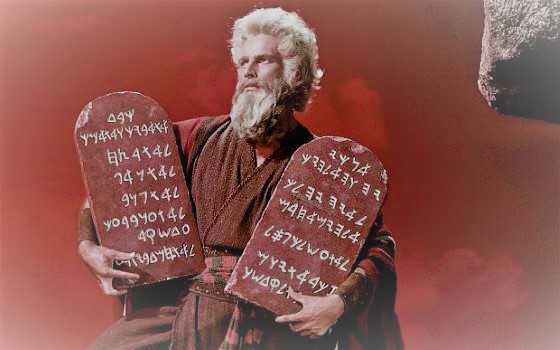
When Jesus raised the son of the widow of Nain from the dead, the people were struck with fear. They said “A great prophet has risen up among us” (Luke 7:16). The Samaritan woman at the well said Jesus was a prophet when He told her something about her past life (John 4:19).
The man born blind who was healed at the temple said the same thing about Jesus (John 9:17). However, his belief in Jesus’ messiahship and deity did not come until John 9:37, after a subsequent conversation with Jesus. Therefore, “prophet” is not a primary designation of Jesus or one used by Him or about Him.
It is important to note that Jesus is never called a prophet or the prophet in the Epistles. Why did the New Testament epistles avoid calling Jesus a prophet? It’s because while Jesus is the prophet whom Moses predicted, He is far greater than any of the Old Testament prophets.
Jesus is Greater than Any Prophet
Jesus is the one about whom the Old Testament prophecies were made.
When Jesus spoke with the two disciples on the road to Emmaus, He took them through the Old Testament, showing how the prophecies pointed to Him (Luke 24:25-27). 1 Peter 1:10-11 says the Old Testament prophets were “predicting the sufferings of Christ and the subsequent glory.”
Thus, the Old Testament prophets looked forward to Christ in what they wrote. Meanwhile, the New Testament apostles looked back to Christ and interpreted His life for the benefit of the church.
Jesus was not merely a messenger of revelation from God like all other prophets but was Himself the source of revelation from God.
Notice that rather than saying, “Thus says the Lord,” as all the Old Testament prophets did, Jesus spoke with divine authority. He would say, “But I say to you…” (Matthew 5:22). The word of the Lord came to the Old Testament prophets, but Jesus spoke on His own authority as the eternal Word of God (John 1:1). Jesus perfectly revealed the Father to us (John 14:9; Hebrews 1:1-2).
In the broader sense of prophet, simply meaning one who reveals God to us and speaks to us the words of God, Christ is of course truly and fully a prophet.
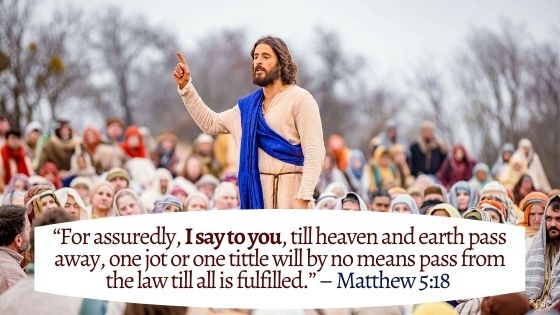
Christ as Priest
The Old Testament priests were appointed by God to offer sacrifices. They also offered prayers and praise to God on behalf of the people of God. In so doing they “sanctified the people or made them acceptable to come into God’s presence, but in a limited way.
In the New Testament, Jesus becomes our great high priest. This theme is developed extensively in the letter to the Hebrews, where we find that Jesus functions as a priest in two ways.
1. Jesus Offered a Perfect Sacrifice for Sin.
The sacrifice which Jesus offered for sins was not the blood of animals such as bulls or goats (Hebrews 10:4). Instead, Jesus offered Himself as a perfect sacrifice (Hebrews 9:26). This was a completed and final sacrifice, never to be repeated (Hebrews 7:27; 9:12, 24-28; 10:1-2, 10, 12, 14; 13:12).
Therefore, Jesus fulfilled all the expectations that were prefigured. Jesus was both the sacrifice and the priest who offered the sacrifice. Jesus is now the “great High Priest who has passed through the heavens” (Hebrews 4:14). He has appeared “appeared in the presence of God for us” (Hebrews 9:24) since He has offered a sacrifice that ended for all time the need for any further sacrifice.
2. Jesus Continually Brings Us Near to God.
The Old Testament priests offered sacrifices and came into the presence of God from time to time on behalf of the people.
But Jesus as our perfect high priest continually leads us into God’s presence. We no longer need a Jerusalem temple or a special priesthood to stand between us and God. Jesus has become our high priest forever (Hebrews 6:20). This means that we have a far greater privilege than those people who lived at the time of the Old Testament temple.
Jesus has opened for us the way of access to God. So, now we can continually “draw near” to God “with a true heart in full assurance of faith” (Hebrews 10:21-22).
Jesus as Priest Continually Prays for Us
One other priestly function in the Old Testament was to pray on behalf of the people. The author of Hebrews tells us that Jesus also fulfills this function (Hebrews 7:25). Paul affirms the same point when he says Christ is the one “who makes intercession for us” (Romans 8:34).
Both Paul and the author of Hebrews are saying that Jesus continually lives in the presence of God to intercede for us. The thought that Jesus is continually praying for us should give us great encouragement. He always prays for us according to the Father’s will so we can know that His requests will be granted.
Christ as King
In the Old Testament, the king has the authority to rule over the nation of Israel. In the New Testament, Jesus was born to be King of the Jews (Matthew 2:2). However, Jesus refused any attempt by people to make Him an earthly king with earthly military and political power (John 6:15).
Jesus told Pilate, “My kingdom is not of this world” (John 18:36). Nonetheless, Jesus did have a kingdom whose arrival He announced in His preaching (Matthew 4:17, 23; 12:28). He is, in fact, the true king of the new people of God.
Thus, Jesus did not rebuke His disciples who cried out, “Blessed is the King who comes in the name of the Lord” Luke 19:38). See also Matthew 21:5; John 1:49; Acts 17:7.
After Jesus’ resurrection, the Father gave Him far greater authority over the church and over the universe. God “raised Him from the dead and seated Him at His right hand in the heavenly places. He put all things under His feet, and gave Him to be head over all things to the church” (Ephesians 1:20-22). See also Matthew 28:18; 1 Corinthians 15:25.
Jesus’ authority over the church and over the universe will be more fully recognized by people when He returns to earth (Matthew 26:64; 2 Thessalonians 1:7-10; Revelation 19:11-16). On that day people will acknowledge Him as “King of kings and Lord of lords” (Revelation 19:16) and every knee shall bow to Him (Philippians 2:10).
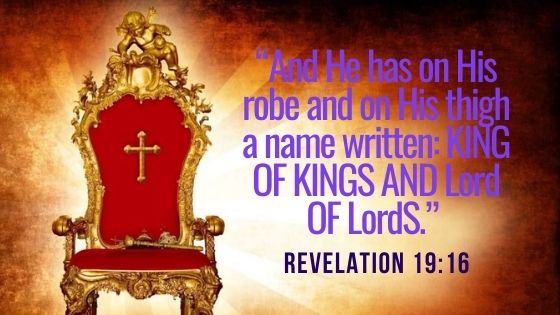
Christians as Prophets, Priests, and Kings
As Christians, we are to imitate Christ in each of these three roles, though in a subordinate way.
We have a prophetic role as we proclaim the gospel to the world. Whenever we speak truthfully about God to others, we are fulfilling a “prophetic” function.
We are priests because Peter calls us “a royal priesthood” (1 Peter 2:9). As such we are to “offer up spiritual sacrifices acceptable to God through Jesus Christ” (1 Peter 2:5). The author of Hebrews also views us as priests who can enter into the holy of holies (Hebrews 10:19, 22).
We also share in part now in the kingly reign of Christ. God “raised us up together, and made us sit together in the heavenly places in Christ Jesus” (Ephesians 2:6). God has even now committed to us authority over various areas in this world or the church.
When Christ returns to rule and reign as King, we will once again be true prophets because our knowledge will then be perfect. Then we will speak only the truth about God and His world. We will be priests forever for we will eternally worship and offer prayer to God as we dwell in His presence. We will also in subjection share in ruling the universe (Revelation 22:5).
Conclusion
When Christ came, we saw for the first time the fulfillment of these three roles. As the perfect prophet, He fully declared God’s words to us. Jesus as the perfect high priest offered the supreme sacrifice for sins and brought us near to God. As the true and rightful king of the universe, Jesus will reign forever with a scepter of righteousness over the new heavens and new earth.
Disclaimer: As an Amazon Associate, I may earn a commission when you use any links on this page to make a purchase, but at no additional cost to you.
Reference: Systematic Theology by Wayne Grudem
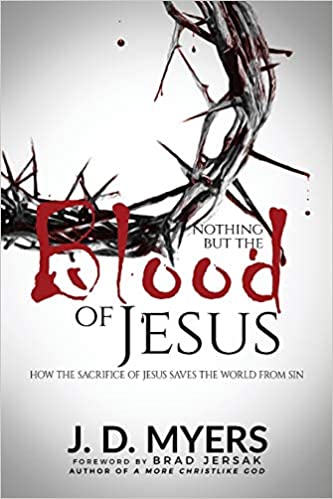 Recommended Resource: Nothing but the Blood of Jesus: How the Sacrifice of Jesus Saves the World from Sin by J. D. Meyers
Recommended Resource: Nothing but the Blood of Jesus: How the Sacrifice of Jesus Saves the World from Sin by J. D. Meyers
Do you have difficulties reconciling God’s behavior in the Old Testament with that of Jesus in the New?
Do you find yourself trying to rationalize God’s violent demeanor in the Bible to unbelievers or even to yourself?
Does it seem disconcerting that God tells us not to kill others but He then takes part in some of the bloodiest wars and vindictive genocides in history?
In Nothing but the Blood of Jesus, J. D. Myers shows how the death of Jesus on the cross reveals the truth about the five concepts of sin, law, sacrifice, scapegoating, and bloodshed. After carefully defining each, this book shows how these definitions provide clarity to numerous biblical texts.

